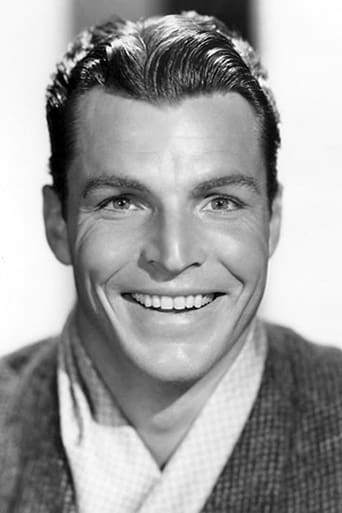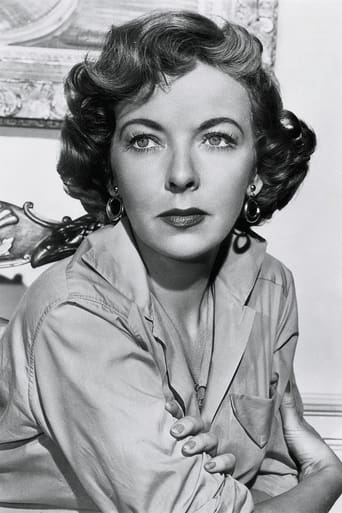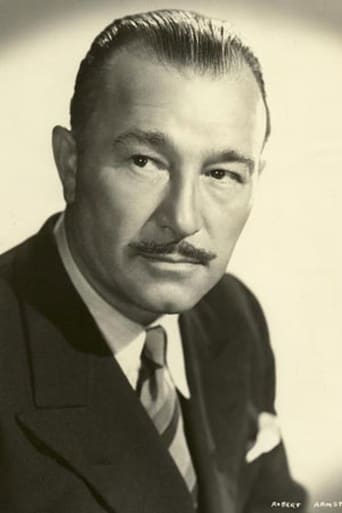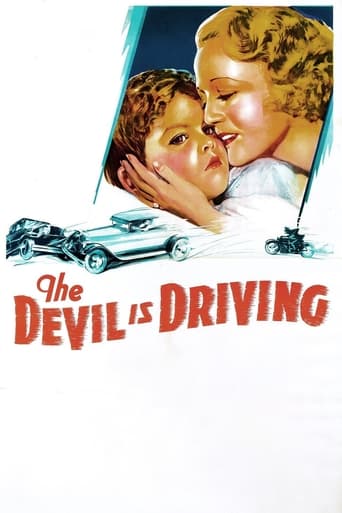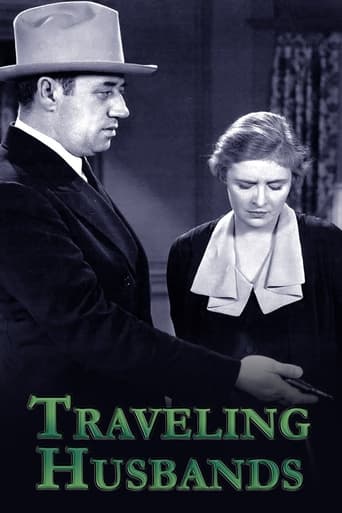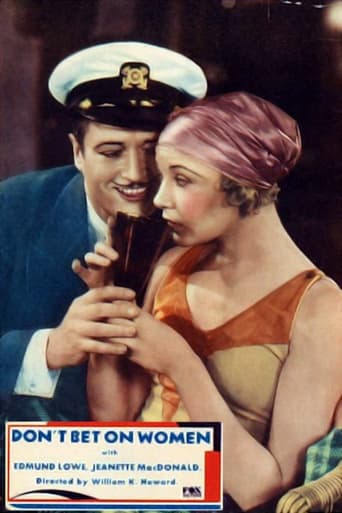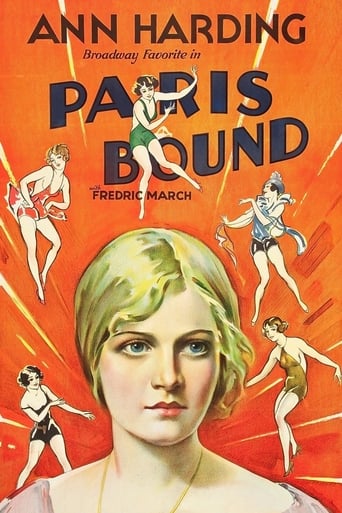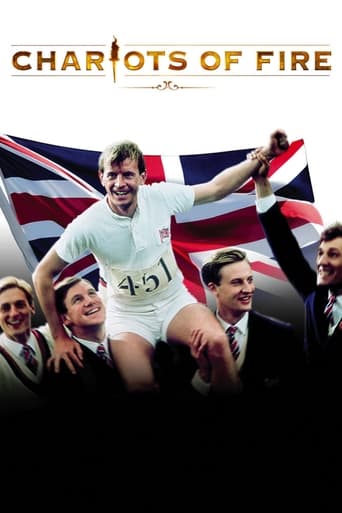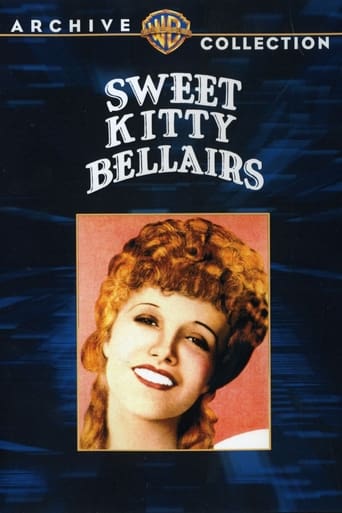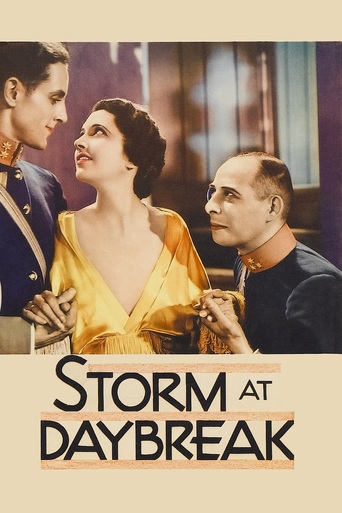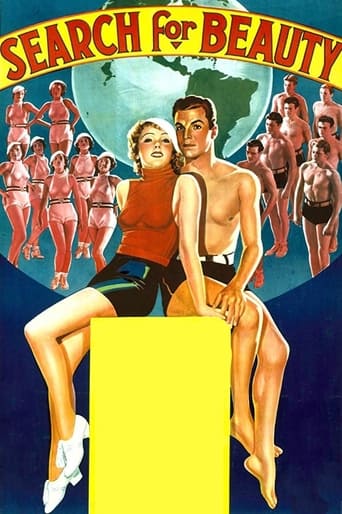
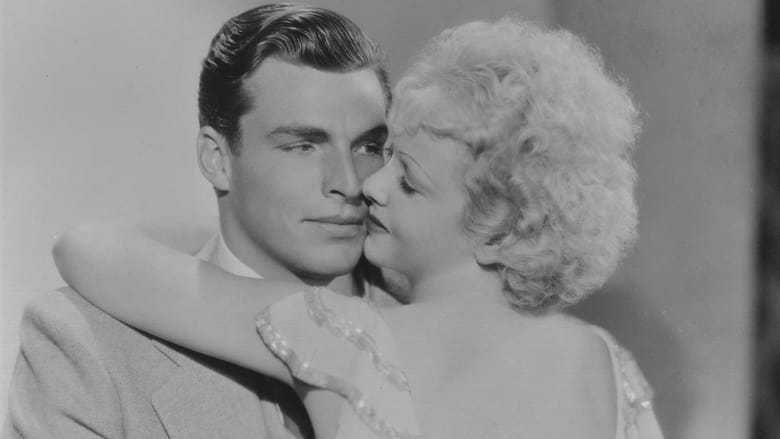
Search for Beauty (1934)
Three con artists dupe two Olympians into serving as editors of a new health and beauty magazine which is only a front for salacious stories and pictures.
Watch Trailer
Cast
Similar titles
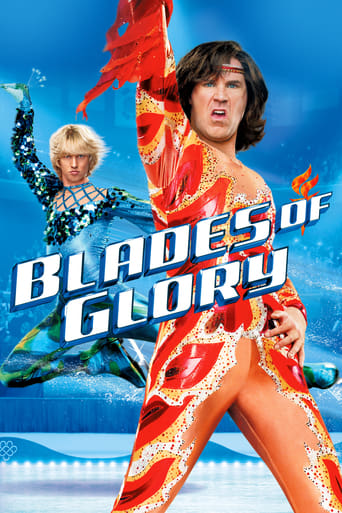
Reviews
Wonderful Movie
This is a coming of age storyline that you've seen in one form or another for decades. It takes a truly unique voice to make yet another one worth watching.
A great movie, one of the best of this year. There was a bit of confusion at one point in the plot, but nothing serious.
Through painfully honest and emotional moments, the movie becomes irresistibly relatable
A 10 for the politics and the for sex the politics disproves of. A key aspect of the movie that most reviewers miss is the essential plot turn requiring the appearance of a federal "morals agent." If that isn't fascism, ca 1934, then I don't know what is. Once he's there, everyone falls in line with the new order.And a new order it was. 1934 was the year the Democratic Party, in a pay-off to its key Roman-Catholic voting bloc (always and still a party of factions), finally enforced the Hayes Code. What makes this movie fascinating is that the movie itself self-consciously enforces the Hayes Code by showing what the Hayes Code prohibits - lots of bouncing breasts, including visible nipples, as other reviewers note - but those are really cover for lots of gorgeous young men, either naked (in an early scene) or (in a later scene) in tank tops and really tight (and of course bulging) short shorts marching militantly, enough to give the Hitler in all fascists a good hard-on.Most reviewers say the movie is worth watching as a swan-song to the pre-code era. I disagree. This movie is a must-see to understand the scandal that was and remains the Democratic Party. Sure, the Republicans have their scandals, but isn't every high school student of American History taught all of them? The American cultural elite presents the Democratic Party, the party of slavery, then Jim Crow, then American Fascism (via FDR), then corrupt hypocrisy,(via JFK), then bureaucratic incompetence (via Carter and Obama) as the saintly party? The party that will solve all our problems if only given complete control of all levers of power? This was the message in 1934, and it remains the message in 2015. We ignore it at our peril, as members of this year's crop of Democratic presidential candidates (Sanders and Clinton) include as part of their platform the evisceration of the first amendment? So watch this movie, one of the first that presents Democrats as the party of moral superiority, an attitude that the current White House trumpets almost every day.But if this movie was just crude 1930s Democratic Party American Fascism propaganda, whose primary focus was the suppression of the liberation of the female libido so evident in pre-code movies, it still would not be worth watching. As noted above, however, this movie is both that and a wonderful celebration of pre-code liberation, as somewhat sadly captured by the wonderful Gertrude Michael. She knows the times are changing, and while her performance has real vigor at the beginning of the movie, by the end of the movie she is weary with defeat. Regardless, Michaels is superb throughout, and at only 23, hard to believe that she is already over-the-hill, but she is, and at the finale it is clear she has been supplanted by the dyed-blonde Ida Lupino, who is excellent as well, but also scary as she embraces the American version of Hitler-youth, by welcoming the vice squad capitan.And what cojones Robert Armstrong has. A full 21 years older than Michaels, he plays her for the true-blue girl-friend he knows he can keep. However, he also knows, as an ex-con, that he's holding a pretty lousy hand in the movie's plot, but he plays it for all its worth. How subtle his performance is compared to the crude Anglo-machismo of Buster Crabbe (What a physique! What a bad actor!). I wish his team, celebrating the Republican virtues of liberty, and its necessary corollary of libertarianism when it comes to matters of sex, could have won the conflict, but that was not to be in 1934, not in Germany or Italy, and certainly not in the US.And no review of the movie can be complete without lauding James Gleason, who of course does a fine comic turn as the shady money-guy. The movie ends with Gleason mooning us, and it is a fitting good-bye to the sexual liberation that did not die, but would be suppressed for another 30 years. For who wants to look at Gleason's butt for long? The American Fascists deliberately end the movie this way, to remind the viewer that they will be better off now that the feds are actively policing morals....And for those cultural liberals, as I am certainly one, who always vote the Democratic ticket for moral reasons, don't think the 1930s vice-squad enforcement of behavior and speech codes had no tragic or devastating consequences in the US, just as the same enforcement today will do the same, then think again. Think of Billy Haines being driven from Hollywood, and all the great actresses, most notably Ruth Chatterton and Helen Twelvetrees, who could no longer find parts suitable for their femme libre personalities. And if this happened in the fake world of cinema, you can imagine what was going on in real life. It couldn't have been pretty, and there had to be a lot of suffering. Perhaps if the American people had risen up and fought for its cinematic and personal freedoms in 1934, then it would have more readily resisted the rise of Nazi Germany. But the course of American cinema shows the exact opposite happening, with 1937's "Love, Honor, and Behave" an outright celebration of National Socialism, right down to Priscilla Lane practicing her German as she belts out "Bei Mir Bist Du (sic) Schane (Schon)." Yuk, and in 2015 we are paying the price for not understanding this shameful history of ours, and the key role the Democratic Party plays in it. So watch this movie so that we don't once again have to repeat history.
It's hard to find a reason for this film. My best guess would be a as candidate for the race before the decency laws came into existence but that's only a guess. All those men and women in bathing suits haven't aged very well. They all look - er - the same after a while. I suppose an exposed ankle a few centuries ago sent men into rapturous poetic expanses so it's probably best to apply tolerance for the test of time. After all the film is in its 70's and things do creak. Imagining Leni Riefenstahl a few years later in her Olympiad married to "Triumph of the Will" with an extremely unfunny subplot sprinkled with very sub sub-Busby Berkley and that about ties things up.Curtis Stotlar
Well, what can I say other than YIPPEE! Slipped through just before the may 1934 deadline of the Hayes Code this is almost the superlative risqué extravaganza for sex and nudity in a 1930s movie. One astonishing scene in a mens locker room even has full male nudity! Unheard of outside Nazi beauty films of the later era and certainly an eye-full of sassy rudeness both in picture and dialog. Other posts here will tell you the story but since this film features two of the most beautiful actors ever on screen BUSTER CRABBE and IDA LUPINO (in blonde 'do) and then peppers the screen with gorgeous women and men parading and exercising and grabbing each other...! THE SEARCH FOR BEAUTY is everything you might hope for in a pre-code sex comedy and wow does it deliver! Hilarious rude and deliciously nude rude and funny. And cheer breathtaking Toby Wing dancing on a table in a negligee!
You really have to see this one to believe it! Not many movies flaunt their pre-code liberty so blatantly and lightheartedly (not unlike the Busby Berkeley extravaganza "Gold Diggers of 1933"). At the same time, it's very successful in its own right as a fast-paced comedy satirizing health-product hucksters and wealthy debauchees.Inspired by the L.A. Olympics, a trio of con artists lure some prize-winning athletes into endorsing their newly-acquired fitness magazine. They stage an international publicity stunt to find the healthiest young bodies in the English-speaking world. While the athletes are out scouting for specimens, the three rogues turn the magazine into a lurid cheesecake rag (their lascivious board of censors is a hoot). This spins off into a health farm, which they try to turn into a high-priced knocking shop for Hollywood swells out to exploit eager young talent.As the con artists, Robert Armstrong and James Gleason have plenty of fancy, word-mangling patter. And Gertrude Michael holds her own, needling them mercilessly, as well as slinkily seducing all-American hero Buster Crabbe. Crabbe practically plays himself, while an unrecognizable bleached-blonde Ida Lupino is his pert female British counterpart.Not only are the dialog and situations pretty risqué, but there are plenty of suggestive visuals. Michaels enthusiastically ogles Crabbe's crotch through binoculars; there's a shower scene with bare-assed young men flitting about, and a production number which has the busty and muscled contest winners bouncing around in tight outfits, simulating Olympic events (male and female flesh are flaunted equally in this film). Berkeley favourite Toby Wing has a plumb role as Lupino's fun-loving underage cousin, who almost suffers a fate worse than death at the climactic wild party (not that the filmmakers seem to be too worried about it!). Lupino has to save her by taking her place in a grinding table-dance. Skinny Gleason, in jogging shorts, provides a very low-comedy fade-out gag.Modern viewers will guffaw at the naive concept that health-conscious athletes would rather stop an orgy than join in. And like most 1930s Paramount films, the set direction is marvellous (just check out Armstrong's dowdy office!).Even if you can only find a jittery video transfer, it's well worth checking this one out. More Paramount Olympic satire can be found in "Million Dollar Legs" (1932 version), and the magazine-exploitation angle was revived for the Don Knotts extravaganza "The Love God?".
